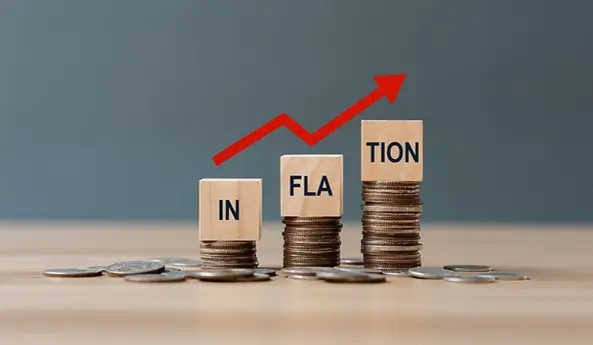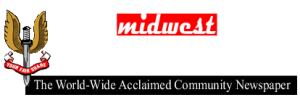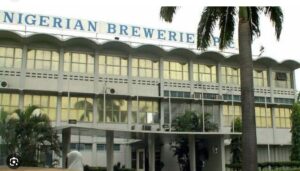Nigeria’s Inflation Rate Over the Roof of Market Expectations

By Oluwatosin Oladetan (MBA, ACCA, PMP, NIM, FMVA, BIDA, SPY-SP, TRCN)
The Nigerian Bureau of Statistics recently released the consumer price index (a measure of the average increase in prices of goods and services) for the month of February 2024, and it was not too shocking to have a year-on-year inflation rate of 31.70% from a 29.90% recorded in January 2024 and 21.91% recorded in February 2023.
Despite market expecting a maximum of 31.50% in the year-on-year inflation rate, the month-on-month inflation rate moved from 2.64% in January 2024 to 3.12% in February 2024.
This is the fourteenth non-stop consecutive increase in rates since December 2022, when the rate was 21.34%.
The movement in the rates between January 2024 and February 2024 is higher than the pace of movement in the rates between December 2023 and January 2024.
The average increase in the price of food and non-alcoholic beverages contributed the most (16.42%) to the increase in headline inflation.
A review of food inflation revealed a 2.51%–251 basis point increase from the year-on-year food inflation rate of 35.41% in January 2024 to 37.92% in February 2024.
On a comparison with the food inflation rate as of February 2023, the spike in the rate was 1,357 BPS from 24.35% in February 2023.
The increase in the food inflation rate was primarily driven by the average increase in the prices of bread and cereals, potatoes, yams and other tubers, fish, oil and fat, meat, fruit, coffee, tea, and cocoa.
When analyzing the month-on-month increase in food inflation between January 2024 and February 2024, the food index increased by 0.58%, from 3.21% in January 2024 to 3.79% in February 2024.
The average increase in the prices of bread and cereals, potatoes, yam and other tubers, fish, coffee, tea, and cocoa contributed the most to the increase in the average prices of food between January 2024 and February 2024.
The average annual food inflation rate for the period ending February 2024 was 30.07%, an increase of 1.16% from the 28.91% average annual rate for the twelve months ending January 2024.
When the comparison is carried out against the average twelve-month inflation ending in February 2023, the increase is 7.95%, up from 22.12% in February 2023.
The year-on-year food inflation rate had the highest increase in Kwara (44.05%), Rivers (44.34%), and Kogi (46.32%), while the states with the lowest food inflation rate were Bauchi (31.46%), Plateau (32.56%), and Taraba (33.23%).
The review of the February-on-January 2024 food inflation rates had the highest rates recorded in Jigawa (5.47%), Yobe and Borno (5.60%), and Adamawa (5.61%), while the states with the lowest food inflation rate were Cross-River (2.08%), Niger (2.56%), and F.C.T. (2.60%).
The Nigerian core inflation, which considers all items less farm produce, excluding the prices of volatile agricultural produce and energy, increased by 1.54% from 23.59% in January 2024, 6.76% from 18.37% in February 2023, to 25.13% in February 2024.
While comparing the February-on-January index, there was a decrease of 0.07% from 2.24% in January 2024 to 2.17% in February 2024.
The average twelve-month inflation rate increased by 0.57% from 21.15% in January 2024 and 4.97% from 16.75% in February 2024 to 21.72% in February 2024.
The average increase in the prices of passenger transport by road, actual and inflated rentals for housing, medical services, and pharmaceutical products contributed the most to the increase in core inflation.
While reviewing the inflation rate across all the states, Bauchi: 35.62%, Oyo: 36.60%, and Kogi: 37.98% were the highest rates, while Borno: 26.28%, Taraba: 26.72%, and Benue: 27.40% were the lowest rates.
The review of the February-on-January 2024 headline inflation rates had the highest rates recorded in Adamawa: 4.46%, Kebbi: 4.64%, and Kwara: 6.42%, while the states with the lowest headline inflation rate were Katsina: 1.93%, Cross River: 1.98%, and Benue: 2.33%.
While reviewing the year-on-year inflation rates across the urban and rural index, the urban index had a spike of 1.71% from 31.95% as of January 2024 to 33.66% as of February 2024, a 10.87% increase from 22.78% in February 2023 to 33.66% in February 2024.
The rural index had a spike of 1.89% from 28.10% in January 2024 to 29.99% in February 2024, an 8.89% increase from 22.78% in February 2023 to 29.99% in February 2024.
On a twelve-month rate of change comparison, the urban inflation rate increased by 0.92% from 27.01% in January 2024 and by 7.48% from 20.45% in February 2023 to 27.93% in February 2024.
The twelve-month rural average inflation rate increased by 0.76% from 23.85% in January 2024 and 5.28% from 19.33% in February 2023 to 24.61% in February 2024.
Despite the consistent increase in the inflation rate over the last fourteen months, Nigeria will not attain an inflation rate above its highest historic inflation rate of 47.56% recorded in January 1996 soon but is still not likely to achieve the target inflation rate of 21.40% in the Nigeria 2024 Budget and Appropriation Act as well as the Revised 2024–2026 Medium Term Expenditure Framework and the Fiscal Strategy Paper soonest due to the following reasons.
There has been an increase in the independence of the Central Bank of Nigeria and the Federal Government.
This will allow economic benefits from the implementation of the right expansionary and restrictive monetary policies.
The Central Bank of Nigeria and the federal government have released several short-term instruments to mop up the excess money in circulation, and further tightening and stiffening of the ways and means of advance is required.
The need to increase exports at a rate significantly greater than the increase in imports through the right development and availability of the right infrastructure, environment, investment, and required resources has reduced the value of the Nigerian net export in naira terms by 99.76% between 2022 and 2023.
High level of insecurity and reduced access to farmland and economic development activities across several localities in the nation.
Relative volatility in the Nigerian Naira to the United States Dollar and other currencies of the world exchange rate, as this has allowed importers of goods and products to reprice their inventories at the replacement and allow the pass-through effect of an increase in cost to the final consumer.
A classic example is the increase in the price of an imported rice bag, which moved by 25% from 72,000:00 to 90,00:00.
Over the short term, market expectations are that the year-on-year inflation rate first flattens around 30% with an error margin of -100/+100 BPS before a downward trend begins if the right monetary and fiscal policy interventions are implemented successfully, of which some are listed below.
Further sanitation of the financial system to reduce the available opportunity and incentive available for speculative and non-valid demand of the foreign exchange.
There is a need to further reduce government expenditure, implement the Orasanye report, and remove the incentive for padding the budget and government expenditures.
The advancement of more facilities, partnerships, support, and the right environment to boost exports will enable the country to earn more foreign exchange revenue in the short and long term.
The Central Bank of Nigeria is more likely to maintain the monetary policy rate at the current level of 22.75% and observe the impact on the march inflation before adjusting the rates upward or downward.
Businesses can harness the opportunity of preventing escalation of cost if they can lock in a fixed naira value on purchasing and sourcing contracts over a long period of time if their suppliers can provide the right opportunity.
The marginal propensity of the average consumer to save is low, as the returns that will be earned on the amount saved are not able to match the uptick in the prices of the goods and services that would have been consumed with that same fund.
Read Also: Nigeria Ranks 131 in World Bank’s Ease of Doing Business Index











3 thoughts on “Nigeria’s Inflation Rate Over the Roof of Market Expectations”